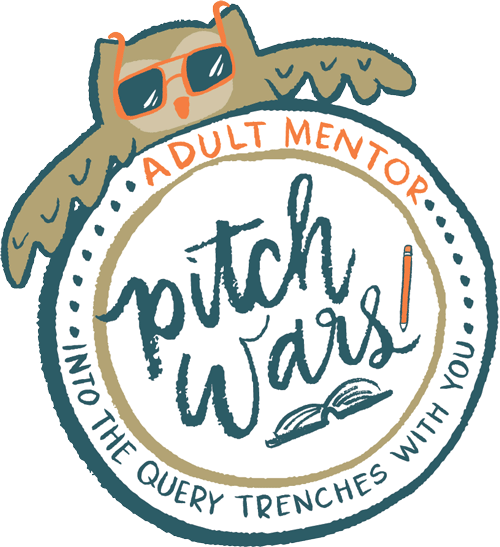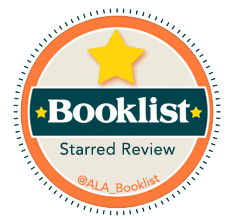5 Commandments of Beta Readers
So, today seems like a good time to talk about how to work with beta readers or critique partners. Really anybody reading your writing and giving you feedback. For my definition of CP vs beta reader, see ** at the bottom.
At the bottom of this post, I included a cheat sheet of potential questions to send to your betas/CPs with your manuscript. If you’ve worked with betas before and don’t need tips, feel free to scroll down to that. I’ve found that talking to beta readers is sort of like running a therapy session as a counselor: You get a lot out of what people volunteer, but you get more out of them if you ask the right questions. So look forward to that. In the meantime, let’s talk the Five Commandments of what you should do for your betas. Not ten, because ten is a lot and I don’t like rules that much.
1. Thou shalt not Lie
Find a way to be positive. But if you didn’t like their ‘Jeremy rides a giant squid’ scene, DON’T say you did. This will help no one.
2. Thou shalt be specific
Don’t just say, “You know, Darla’s reaction just didn’t read true to me.” Where? FOR THE LOVE OF CHIPMUNKS, WHERE? It is a 450 page book and Darla has at least 350 different reactions to things in this book. Also, don’t say: “Your grammar sucks. Your punctuation needs work.” Say where or how, or something they can grab onto like a lifeboat in a storm. Make sure they know what to fix, and how to start.
3. Thou shalt not be a d*ck.
Find something nice to say. Did you like that one funny line of dialogue in Ch 5? Did you like the way they had an aunt character because nobody remembers that fictional people have aunts until the parents are killed in a horrible accident? Did you like that their grammar was strong and consistent? Find SOMETHING to compliment. Not only that, you can phrase the constructive criticism stuff more mildly and nicely. You don’t have to tell them you think their main character is an a**hole. You can say, “You could tweak for likability if maybe you…” Plus, in any piece of writing, no matter how rough, there’s something good, and if you tell the writer what that is, they will find something even better to show you. And folks? Stick around for that moment because it feels reeeeal good. Don’t you like making people happy?
Also, amount of positive feedback: this is different for every writer, but take whatever amount of positive feedback you THINK they need, and double to quadruple it. They know what they did right, you think. I don’t need to say it, do I? You do. In fact, most writers don’t know their strengths and even if they do, they’re probably afraid that they’re wrong and are in fact a fraud and a sham and should probably burn their laptop and take up knitting or perhaps sitting very still in the corner of a dark closet. You need to mention more positives than you think you do in order to convince them they’re wrong.
4. Thou shalt not take everyone
Seriously, don’t sign on with everyone who wants to beta read or CP for you. Try them out first. Trade a chapter or two. See their writing, see how helpful their comments are to you. It’s okay to shake hands, say, this is fun but let’s just be friends. You know? Because first, you want somebody that’s close to your level of skill or better. If they’ve just written their first Post-It note and you’re on your fourteenth epic fantasy cycle, you’re not going to benefit much from the relationship. Which is fine. There is a time and a place for helping out writers and it can be super rewarding and fun and help you organize the knowledge you didn’t even know you had.
BUT. For a really quality beta relationship, you want somebody close to your skill level who writes in a moderately similar style to you. That doesn’t mean you can’t go outside your genre (I have one CP who is a romance writer, and another who writes fantasy. They have different strengths and I need them both to make me whole.) but it does mean just because another writer is good doesn’t mean that their style will be close enough to yours for you to help each other. Fyodor Dostoyevsky and Stephenie Meyer would not be great beta partners for one another, even though they’re both seen as fairly successful authors. Similarly, John Green and Tolkien might not be a superb pair. Also, some people are great writers but they suck at giving feedback. They’re snooty or they tear you down to feel good about themselves or they just don’t know how to articulate how you need to fix your book. There, I said it, so you don’t have to.
5. Thou shalt remember thy purpose.
Sweet, you think. My purpose is to make them better and I told them all the stuff that’s wrong with their book. They’ll thank me later.
WRONG. Your first purpose as a beta is to make sure that writer doesn’t quit. They will be a better writer tomorrow than they are today. In ten years, you won’t even BELIEVE the stuff they’re pulling off. And if you discourage them so much today that they quit, the world will never see any of that. Trust me, you don’t want that kind of karma hanging over your head. Also, I will find you, and I WILL kick you in the shins. I have literally nothing better to do than find people who discourage writers and give their shins a good kicking.
So your first purpose as a beta is to encourage the writer and make sure they know what they’re doing right and what their potential might be so they don’t quit. Your second purpose is to help them get better.
♦
And now, because I hate rules and I’m sort of tired of them, let’s talk questionnaires. This isn’t a comprehensive questionnaire. It’s just one my CPs and I made up, to make sure your beta reader notes will cover all the bases. I encourage you to add questions for your specific concerns for each manuscript. Like, “Does Jeannie look like a bitch when she steals Tommy’s pet roll of toilet paper?” “Is it too slow when you watch Kent sort his coin collection or is it good character development to see his precision?” Whatever you’re worried might not be working but you want to make sure it’s not your self doubt talking. Also, I added some happy questions in there because you need to know the good stuff, not just the bad. One of my fave lessons from fanfic writing is that your readers’ favorite parts aren’t necessarily your favorite parts. It’s super fun to see what’s working for people.
The Questionnaire
-Does the ms have a strong hook at beginning? Does it start in the right place?
-Strengths/Weaknesses of the ms?
-How is the characterization? Was there any place where you felt you couldn’t follow the motivations, or didn’t buy them? Were there any places your reactions to the characters undermined your enjoyment in the story (not that they pissed you off so you turned pages faster- that’s positive)?
-How is the pacing? Were there any places where it slowed down?
-When did you feel the most/least engaged with the text? At what point did you start getting bored/distracted?
-Were there any scenes you didn’t get the point of, or felt that they didn’t serve the story as a whole?
-How was the imagery/description? Do we need more, less, just right?
-What did you think were the overall themes of the book? How would you strengthen them, if needed?
-Did anything in the book seem fake/unrealistic to you?
-What are issues you see agents/editors/other readers having with the book?
-Was there enough conflict? Did it feel natural to you? Were there any points where it felt contrived or forced?
-How was the romance? Did you like both characters? Did you care if they got together, and when they did, did it feel realistic and believable to you? (This should be genre specific. For fantasy: how was the worldbuilding, etc.)
-What was your favorite part/thing/scene of the book?
-What was your least favorite part/thing/scene of the book?
-What is the one problem with the book that you are hesitant to bring up, possibly because you’re not sure how to fix it?
♦
That’s it, folks. So now go forth, get betas and CPs, and be very very nice to them, because your writing future depends on their wisdom.
♦
**Definitions. Many people have different definitions of beta reader or CP. Whatever works for you is fine, just talk clearly to the other person about what you expect from them and what they can expect from you. For me, a critique partner (CP) = somebody who gives you line by line feedback (Wouldn’t ‘dick’ work better here than ‘manroot’? Or ‘add a comma’. Or ‘You spelled schnitzel wrong again.’) and also big picture feedback on pacing, characterization, plot, conflict, whether your story is working, etc. A beta reader is someone who reads and JUST gives you big picture feedback, not line by line comments.




















This post is just amazing. Super helpful. It’ll undoubtedly help me get beta readers and help me become a better one too. Thanks a bunch, Michelle! ☺☺☺
Pingback : PitchWars Mentor Bio & Wishlist | Michelle Hazen
This is MINT!!!